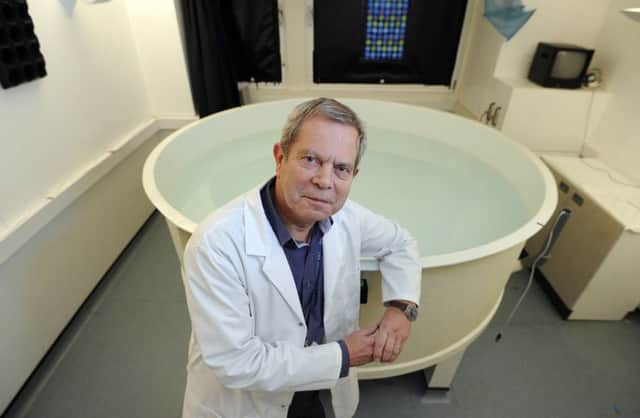Edinburgh scientist wins Brain Prize for memory work


The €1 million (£780,000) Brain Prize has been awarded to a trio of UK scientists, including Edinburgh University expert Richard Morris and English colleagues Tim Bliss and Graham Collingridge, for their work on a brain mechanism called Long-Term Potentiation (LTP), which has improved understanding of how memories are formed, retained and lost.
They demonstrated how connections between brain cells in the hippocampus, which form memories, can be strengthened through repeated stimulation.
Advertisement
Hide AdAdvertisement
Hide AdLTP underpins the plasticity of the brain, so it can reorganise and rebuild itself after damage such as a stroke.
Damage to nerve connections, or synapses, is thought to play a role in brain-related conditions such as autism, depression and epilepsy.
It is hoped their work could lead to better treatments for conditions such as dementia.
Prof Morris devised a laboratory test for spatial memory in 1986 by creating a water maze where rats and mice could swim around to find a platform hidden under the water.
He discovered that damage to the hippocampus would severely hinder a rodent’s ability to find its way.
Prof Morris said: “While much of the work we have done on LTP has been driven by our curiosity about how the brain stores memories, it is inevitable that knowledge of basic mechanisms will lead to approaches for alleviating the pathologies of memory that are becoming increasingly prominent in our ageing society.”
Prof Bliss, from the Francis Crick Institute in London, has been a driving force in exploring LTP since his team came up with the first detailed description of the process in 1973.
Techniques to identify key molecules that are responsible for LTP were developed by Prof Collingridge, from Bristol University, who discovered a protein in the brain known as an NMDA receptor that is important for communication among nerve cells.
Advertisement
Hide AdAdvertisement
Hide AdSir Colin Blakemore, chairman of the Brain Prize selection committee, said: “This year’s winners, through their ground-breaking research, have transformed our understanding of memory and learning, and the devastating effects of failing memory.”
Awarded annually by the Grete Lundbeck European Brain Research Foundation in Denmark, the coveted prize will be presented by Crown Prince Frederik of Denmark in Copenhagen in July.